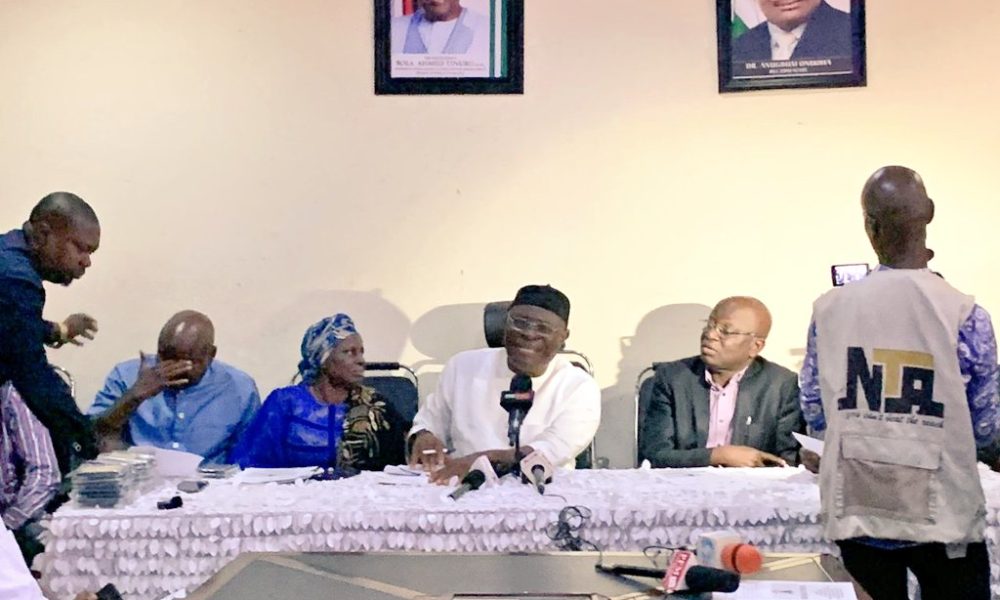The Independent National Electoral Commission (INEC) has presented the register of voters to political parties in Edo State.
INEC disclosed this in a statement which it shared on its official X account on Tuesday afternoon.
“As part of preparations for the Edo State Governorship Election on September 21, 2024, the Independent National Electoral Commission (INEC) held an important meeting today, August 20, 2024, to present the voter register to political parties,” the statement read.
The event took place at the INEC State Head Office in Benin City and was attended by key stakeholders.
INEC National Commissioner overseeing Edo State, Professor Rhoda Gumus was present at the meeting and delivered a key address.
Gumus emphasized the critical role of the election in determining the future of Edo State, stressing that every vote counts and highlighting the need for all parties to uphold democratic principles.
Prof. Gumus also underscored INEC’s commitment to ensuring a credible and transparent process, urging political parties to work closely with INEC to guarantee a peaceful election.
She reassured stakeholders that the Commission has implemented various measures to ensure that the election is free, fair, credible and conducted in a transparent manner.
The Resident Electoral Commissioner (REC) for Edo State, Dr. Anugbum Onuaha welcomed everyone and emphasized the importance of transparency and inclusiveness in the electoral process.
Onuaha detailed the efforts made by INEC to ensure that the voter register is comprehensive and up-to-date, reflecting all eligible voters in Edo State.
He encouraged political parties to engage constructively and assured them that INEC would address any concerns promptly.
Dr. Onuaha concluded by reiterating INEC’s commitment to conducting an election that not only meets national standards but also upholds the confidence of the voters in the democratic process.
The Director of Voter Registry, Tunde Gafar gave a detailed presentation about the voter register.
Gafar discussed the demographics and distribution of registered voters across the state, helping political parties understand the electorate better.
He also talked about the new technology that will be used in the election to make it more efficient and reliable.

